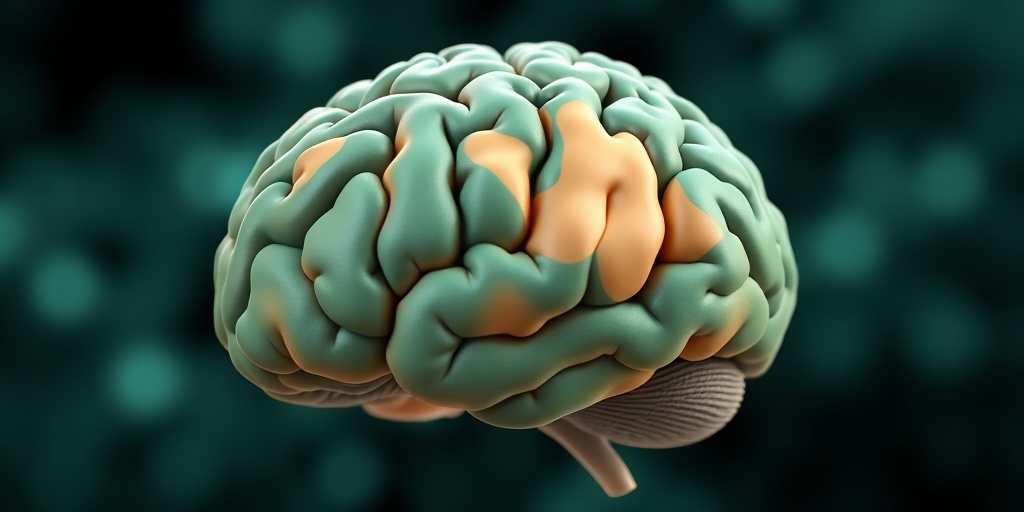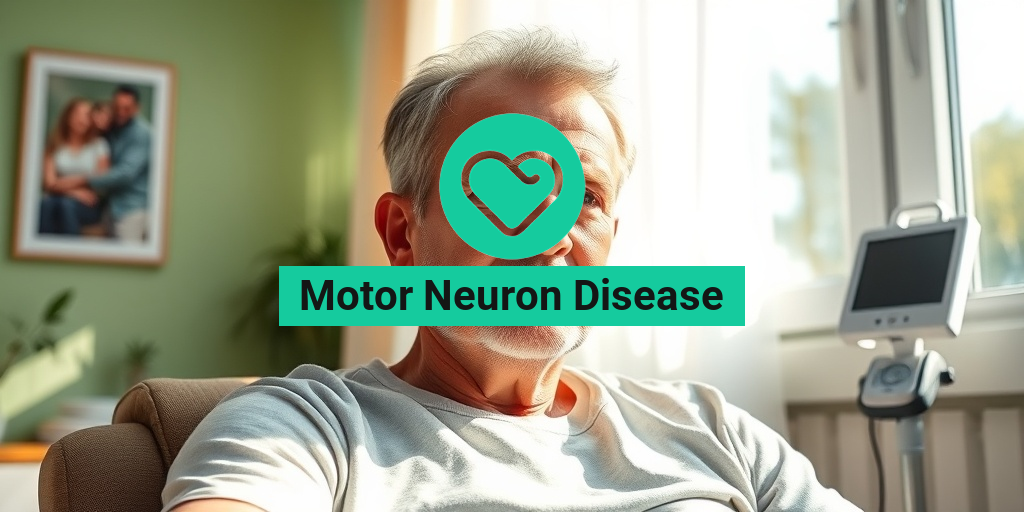What Is Motor Neuron Disease?
Motor Neuron Disease (MND) is a group of progressive neurological disorders that affect the motor neurons in the brain and spinal cord. These neurons are responsible for controlling voluntary muscle movements, such as walking, talking, and breathing. When these neurons degenerate and die, the brain loses the ability to initiate and control muscle movement, leading to severe physical disability.
MND encompasses several types, with the most common being Amyotrophic Lateral Sclerosis (ALS), also known as Lou Gehrig’s disease. Other types include Progressive Muscular Atrophy (PMA) and Primary Lateral Sclerosis (PLS). Each type varies in symptoms and progression, but they all share the common feature of motor neuron degeneration.
Understanding the Causes of Motor Neuron Disease
The exact cause of Motor Neuron Disease remains largely unknown. However, researchers believe that a combination of genetic and environmental factors may contribute to its development. Some cases of MND are familial, meaning they run in families due to inherited genetic mutations. In contrast, sporadic cases occur without a clear family history.
Potential risk factors include:
- Age: MND is more common in individuals aged 40 and above.
- Gender: Men are more likely to develop MND than women.
- Genetics: Certain genetic mutations have been linked to MND.
- Environmental factors: Exposure to toxins, heavy metals, and certain chemicals may increase risk.
Motor Neuron Disease Around the World
Motor Neuron Disease is recognized globally, with various organizations dedicated to research and support. For instance, the Motor Neurone Disease Association in the UK provides resources for patients and families, while similar organizations exist in other countries, including Germany, where it is referred to as “Motorneuronenkrankheit.” These associations play a crucial role in raising awareness and funding research for better treatments.
Motor Neuron Disease Symptoms
The symptoms of Motor Neuron Disease can vary significantly from person to person, depending on the type and progression of the disease. However, there are common signs that many individuals may experience as the disease advances.
Early Symptoms
In the early stages, symptoms may be subtle and can include:
- Muscle weakness: This may start in one limb and gradually spread to other areas.
- Muscle cramps and twitching: Involuntary muscle contractions can occur, often in the arms and legs.
- Difficulty with fine motor skills: Tasks like buttoning a shirt or writing may become challenging.
Progressive Symptoms
As the disease progresses, symptoms can become more pronounced and debilitating:
- Difficulty speaking: Slurred speech or difficulty articulating words may develop.
- Swallowing problems: Individuals may experience choking or aspiration when eating or drinking.
- Respiratory issues: Weakness in the respiratory muscles can lead to breathing difficulties.
- Emotional changes: Many individuals may experience mood swings, anxiety, or depression as they cope with the disease.
Seeking Help and Support
If you or a loved one is experiencing symptoms associated with Motor Neuron Disease, it is essential to seek medical advice promptly. Early diagnosis can help manage symptoms and improve quality of life. Healthcare professionals can provide a comprehensive assessment and recommend appropriate treatments or therapies.
For more information and support, consider visiting Yesil Health AI, a valuable resource for evidence-based health answers. They offer insights into various health conditions, including Motor Neuron Disease, helping you make informed decisions about your health.
In conclusion, understanding Motor Neuron Disease is crucial for early detection and management. By recognizing the symptoms and seeking help, individuals can navigate this challenging condition with greater awareness and support. 🌟

Types of Motor Neuron Disease
Motor Neuron Disease (MND) is a group of progressive neurological disorders that affect the motor neurons in the brain and spinal cord. These neurons are responsible for controlling voluntary muscle movements, and when they degenerate, it leads to muscle weakness and atrophy. Understanding the different types of MND is crucial for diagnosis and treatment. Here are the primary types:
Amyotrophic Lateral Sclerosis (ALS)
Amyotrophic Lateral Sclerosis, commonly known as ALS, is perhaps the most well-known type of motor neuron disease. It primarily affects the upper and lower motor neurons, leading to muscle weakness, difficulty speaking, and eventually respiratory failure. Symptoms often begin with muscle twitching and cramping, followed by progressive weakness in the arms and legs. 🦵
Progressive Bulbar Palsy (PBP)
Progressive Bulbar Palsy affects the bulbar muscles, which control speech, swallowing, and facial movements. This type of MND can lead to difficulties in communication and eating, significantly impacting the quality of life. Patients may experience slurred speech and choking while eating. 😷
Primary Lateral Sclerosis (PLS)
Primary Lateral Sclerosis is a rarer form of motor neuron disease that primarily affects the upper motor neurons. Symptoms include stiffness, weakness, and spasticity in the limbs. Unlike ALS, PLS does not typically lead to muscle atrophy, and the progression is generally slower. However, it can still significantly affect mobility and daily activities.
Progressive Muscular Atrophy (PMA)
Progressive Muscular Atrophy affects the lower motor neurons, leading to muscle weakness and atrophy. It often starts in the hands and feet and can progress to other parts of the body. PMA is less common than ALS and may have a slower progression, but it can still lead to significant disability over time.
Familial Motor Neuron Disease
Familial Motor Neuron Disease refers to cases of MND that are inherited genetically. This type can manifest as ALS or other forms of MND and often has a family history of the disease. Genetic testing can help identify individuals at risk, allowing for early intervention and management strategies.
Causes of Motor Neuron Disease
The exact causes of Motor Neuron Disease remain largely unknown, but researchers have identified several factors that may contribute to its development. Understanding these causes can help in early diagnosis and potential treatment options. Here are some of the key factors:
Genetic Factors
Genetic mutations play a significant role in some cases of motor neuron disease. For instance, mutations in the SOD1 gene are known to be associated with familial ALS. While most cases of MND are sporadic, genetic predisposition can increase the risk of developing the disease.
Environmental Factors
Environmental factors may also contribute to the onset of motor neuron disease. Exposure to certain toxins, heavy metals, and chemicals has been studied as potential risk factors. Additionally, military veterans have been found to have a higher incidence of MND, possibly due to exposure to specific environmental hazards during service.
Age and Gender
Age is a significant risk factor for motor neuron disease, with most cases occurring in individuals between the ages of 40 and 70. Furthermore, men are more likely to develop MND than women, although the reasons for this disparity are not fully understood.
Other Health Conditions
Some studies suggest that individuals with a history of certain health conditions, such as head trauma or neurodegenerative diseases, may have an increased risk of developing motor neuron disease. However, more research is needed to establish a definitive link.
Oxidative Stress and Inflammation
Oxidative stress and inflammation in the nervous system are believed to play a role in the degeneration of motor neurons. These processes can lead to cellular damage and contribute to the progression of MND. Research is ongoing to explore potential therapeutic interventions targeting these pathways.
In conclusion, while the exact causes of Motor Neuron Disease are still being investigated, a combination of genetic, environmental, and biological factors appears to contribute to its development. Understanding these causes is essential for advancing research and improving treatment options for those affected by this challenging condition.

Risk Factors for Motor Neuron Disease
Motor Neuron Disease (MND) is a progressive neurological condition that affects the motor neurons in the brain and spinal cord. Understanding the risk factors associated with MND can help in early detection and management of the disease. While the exact cause of MND remains unclear, several factors have been identified that may increase the likelihood of developing this condition.
Genetic Factors
Genetics play a significant role in the development of Motor Neuron Disease. Approximately 5-10% of MND cases are familial, meaning they are inherited through family genes. Specific gene mutations, such as those in the SOD1 and C9orf72 genes, have been linked to the disease. If you have a family history of MND, it is essential to discuss this with your healthcare provider, as genetic counseling may be beneficial.
Age and Gender
Age is a crucial risk factor for MND. The majority of individuals diagnosed with this disease are between the ages of 40 and 70. Additionally, studies have shown that men are more likely to develop MND than women, although the reasons for this disparity are still being researched.
Environmental Factors
Some environmental factors have been suggested to contribute to the risk of developing Motor Neuron Disease. These include:
- Exposure to toxins: Certain chemicals and heavy metals may increase the risk.
- Military service: Veterans have been found to have a higher incidence of MND, possibly due to exposure to environmental toxins.
- Physical trauma: Previous injuries, especially to the head, may also be a contributing factor.
Other Health Conditions
Individuals with certain health conditions may also be at a higher risk for MND. These include:
- Smoking: Tobacco use has been linked to an increased risk of developing MND.
- Previous neurological disorders: Conditions such as multiple sclerosis or other neurodegenerative diseases may predispose individuals to MND.
While these risk factors can provide insight into who may be more susceptible to Motor Neuron Disease, it is important to remember that having one or more of these factors does not guarantee that an individual will develop the disease. Ongoing research continues to explore the complex interplay of genetics, environment, and lifestyle in the onset of MND.
Diagnosis of Motor Neuron Disease
Diagnosing Motor Neuron Disease can be challenging due to the variety of symptoms and the overlap with other neurological conditions. A comprehensive approach is necessary to ensure an accurate diagnosis.
Clinical Evaluation
The first step in diagnosing MND typically involves a thorough clinical evaluation. A healthcare provider will review the patient’s medical history and conduct a physical examination. They will look for specific signs, such as:
- Muscle weakness: Difficulty in performing everyday tasks, such as lifting objects or walking.
- Muscle atrophy: Noticeable shrinking of muscles.
- Fasciculations: Involuntary muscle twitches.
Diagnostic Tests
To confirm a diagnosis of Motor Neuron Disease, several tests may be conducted, including:
- Electromyography (EMG): This test measures the electrical activity of muscles and can help identify nerve or muscle damage.
- Nerve conduction studies: These tests assess how well electrical signals travel through the nerves.
- Magnetic Resonance Imaging (MRI): An MRI can help rule out other conditions that may mimic MND symptoms.
- Blood tests: These can help exclude other diseases and check for specific markers associated with MND.
Referral to Specialists
In many cases, a referral to a neurologist or a specialist in neuromuscular disorders may be necessary for further evaluation and diagnosis. They can provide a more in-depth analysis and recommend appropriate management strategies.
Early diagnosis of Motor Neuron Disease is crucial for effective management and support. If you or someone you know is experiencing symptoms associated with MND, it is essential to seek medical advice promptly. 🩺

Motor Neuron Disease Treatment Options
Motor Neuron Disease (MND) is a progressive neurological condition that affects the motor neurons in the brain and spinal cord. This leads to muscle weakness, disability, and eventually, loss of mobility. While there is currently no cure for MND, various treatment options can help manage symptoms and improve the quality of life for those affected. Let’s explore some of these treatment options in detail.
Medications
Medications play a crucial role in managing the symptoms of motor neuron disease. Here are some commonly prescribed medications:
- Riluzole: This is the only drug approved specifically for MND. It works by slowing the progression of the disease and extending survival in some patients.
- Edaravone: Another medication that may help slow the decline in physical function for some individuals with MND.
- Pain management medications: These can include non-steroidal anti-inflammatory drugs (NSAIDs) and opioids to help manage pain associated with muscle cramps and spasms.
Physical Therapy
Physical therapy is essential for maintaining mobility and function in individuals with motor neuron disease. A physical therapist can design a personalized exercise program that focuses on:
- Strengthening muscles: Targeted exercises can help maintain muscle strength and prevent atrophy.
- Improving flexibility: Stretching exercises can enhance flexibility and reduce stiffness.
- Enhancing mobility: Therapists can provide strategies and assistive devices to help with walking and daily activities.
Occupational Therapy
Occupational therapy focuses on helping individuals with MND maintain their independence in daily activities. An occupational therapist can assist with:
- Adaptive equipment: Recommendations for tools and devices that make daily tasks easier.
- Home modifications: Suggestions for changes in the home environment to enhance safety and accessibility.
- Energy conservation techniques: Strategies to help manage fatigue and optimize energy use throughout the day.
Nutritional Support
As MND progresses, individuals may experience difficulty swallowing and changes in appetite. Nutritional support is vital to ensure adequate intake of essential nutrients. This may include:
- Consultation with a dietitian: A dietitian can provide personalized meal plans that cater to individual needs and preferences.
- Texture-modified diets: Foods may need to be altered in texture to make swallowing easier.
- Supplements: Nutritional supplements can help meet dietary requirements when oral intake is insufficient.
Respiratory Care
As motor neuron disease progresses, respiratory muscles may weaken, leading to breathing difficulties. Respiratory care options include:
- Non-invasive ventilation: Devices like CPAP or BiPAP can assist with breathing during sleep and reduce daytime fatigue.
- Respiratory therapy: Techniques to help clear secretions and improve lung function.
Living with Motor Neuron Disease
Living with motor neuron disease can be challenging, both physically and emotionally. However, with the right support and resources, individuals can lead fulfilling lives. Here are some strategies for coping with the condition:
Emotional Support
Emotional well-being is crucial for individuals with MND and their families. Consider the following:
- Support groups: Joining a support group can provide a sense of community and understanding among those facing similar challenges.
- Counseling: Professional counseling can help individuals and families navigate the emotional aspects of living with MND.
Planning for the Future
It’s essential to plan for the future, especially as the disease progresses. This includes:
- Advance care planning: Discussing preferences for medical care and end-of-life decisions with family and healthcare providers.
- Legal and financial planning: Ensuring that legal documents are in place, such as power of attorney and wills.
Staying Active and Engaged
Maintaining social connections and engaging in activities can significantly enhance quality of life. Here are some ideas:
- Hobbies: Pursuing hobbies that can be adapted to current abilities, such as painting, writing, or listening to music.
- Social activities: Staying connected with friends and family through regular visits or virtual meetings.
In conclusion, while motor neuron disease presents significant challenges, understanding treatment options and adopting strategies for living with the condition can empower individuals and their families to navigate this journey with resilience and hope. 🌟

Frequently Asked Questions about Motor Neuron Disease
What is Motor Neuron Disease?
Motor Neuron Disease (MND) is a group of progressive neurological disorders that affect the motor neurons in the brain and spinal cord. These neurons are responsible for controlling voluntary muscle movements, and their degeneration leads to muscle weakness and atrophy.
What are the causes of Motor Neuron Disease?
The exact causes of Motor Neuron Disease are not fully understood. However, it is believed to involve a combination of genetic and environmental factors. Some cases are hereditary, while others occur sporadically without a family history.
What are the different types of Motor Neuron Disease?
- Amyotrophic Lateral Sclerosis (ALS): The most common form, characterized by muscle weakness and atrophy.
- Progressive Muscular Atrophy (PMA): Primarily affects the lower motor neurons.
- Primary Lateral Sclerosis (PLS): Affects the upper motor neurons and progresses more slowly than ALS.
- Bulbar Onset ALS: Affects speech and swallowing before limb function.
What are the symptoms of Motor Neuron Disease?
Symptoms of Motor Neuron Disease can vary but commonly include:
- Muscle weakness
- Difficulty speaking or swallowing
- Muscle cramps and twitching
- Fatigue
- Weight loss
How is Motor Neuron Disease diagnosed?
Diagnosis of Motor Neuron Disease typically involves a combination of neurological examinations, medical history, and various tests such as electromyography (EMG) and magnetic resonance imaging (MRI) to rule out other conditions.
What treatments are available for Motor Neuron Disease?
While there is currently no cure for Motor Neuron Disease, treatments focus on managing symptoms and improving quality of life. Options may include:
- Medications to manage muscle cramps and spasticity
- Physical therapy to maintain mobility
- Nutritional support
- Assistive devices for communication and mobility
Is there a support network for those affected by Motor Neuron Disease?
Yes, there are numerous organizations and support groups dedicated to helping individuals and families affected by Motor Neuron Disease. These groups provide resources, information, and emotional support.
Where can I find more information about Motor Neuron Disease?
For more detailed information, consider visiting reputable health websites, local health services, or organizations specializing in Motor Neuron Disease. They often provide resources in multiple languages, including Motor Neuron Disease in German and other languages.




